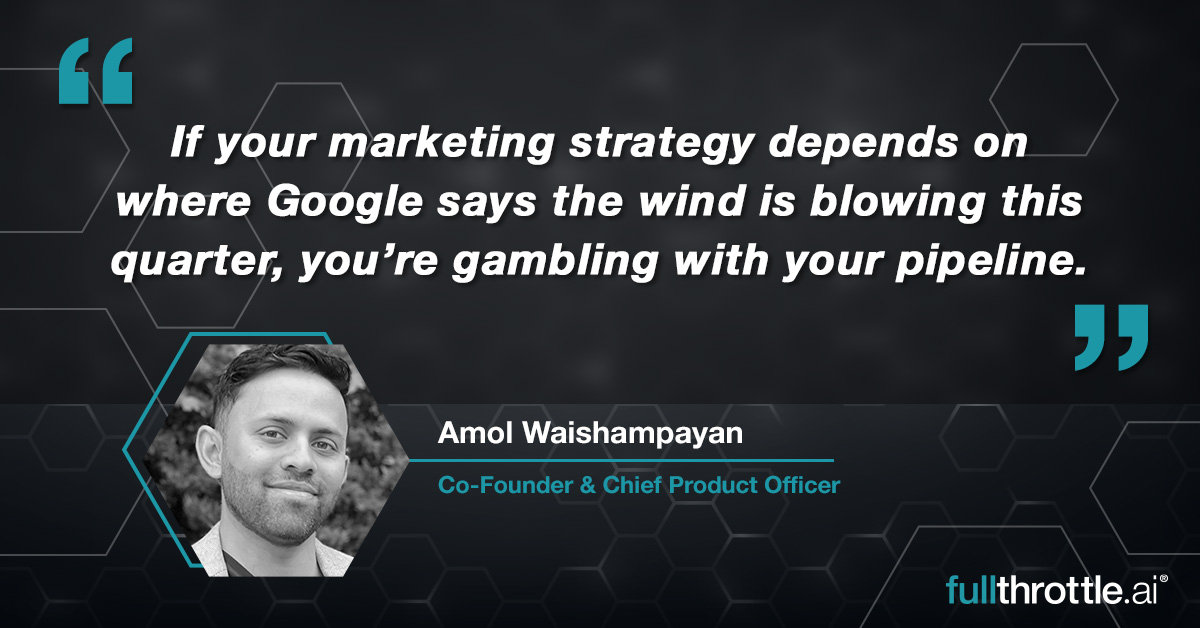
by: Amol Waishampayan
Google Pulls the Rug on Marketers One Last Time
Last week, Google made it official: Third-party cookies are staying in Chrome. There will be no mandatory opt-out prompt, no clean Privacy Sandbox rollout. After four years of shifting timelines and rebranded proposals, Google's big privacy push has effectively collapsed. If you built your roadmap around their promises, you’re now scrambling to rethink your strategy.
Google will claim it fell apart because of a sudden change in priorities, but that’s not true. It fell apart because the entire initiative was built to consolidate control, not to empower advertisers, publishers, or consumers. Regulators saw through it; the market pushed back.
Now, Google is quietly stepping away from it.
Key takeaways:
- Google’s roadmap is unreliable, so building your own audiences is the only true path forward.
- The real threat to your growth isn’t targeting inefficiency, it’s low retention.
- Stop renting your reach from Big Tech; start owning your customer relationships.
What It Really Means for Marketers
Marketers shouldn’t treat this reversal as a reprieve. The third-party signal loss is already widespread — cookies are blocked in Safari and Firefox, limited in Chrome for many users — and their utility will only continue to decline.
The bigger story isn’t that cookies are sticking around a little longer. It’s that Google’s roadmap has proven unreliable. “Cookies are out! Cookies are delayed! Wait ... no, cookies are back!” It’s been a pattern of constant reversals.
If your marketing strategy depends on where Google says the wind is blowing this quarter, you’re gambling with your pipeline.
The issue was never just technical. It was about ownership. Google’s endgame has always been to keep advertisers inside its walls, not to give them independence. Their reversals show that betting on Big Tech to solve the future of advertising is a losing play.
The Real Problem Isn’t Addressability — It’s Retention
At fullthrottle.ai®, we've been saying this for years: Audience ownership has always been the real issue. Addressability is downstream from that.
Marketers quibble about audience targeting, but there’s something deeper undermining profits: low retention. Audiences show up anonymously and leave without a trace (or a reason to come back). That's not an addressability problem. It's a retention problem, and solving that requires value, not surveillance. Think about it this way: Relying on third-party identifiers from Big Tech is like renting the relationship with your audience. The rent can be raised — or even revoked — at any time.
fullthrottle.ai® Is Built Different
We didn’t build our platform around third-party cookies, device IDs, or browser-based tracking. Instead, we built it around direct audience ownership.
fullthrottle.ai® enables brands to identify real audiences using only first-party data, engage them across channels, and measure true outcomes (without relying on whatever visibility the browser giants decide to allow). We wanted a way to build audiences from actual website traffic, not lookalikes that you have to cross your fingers for. We built our platform on that foundation.
To future-proof your marketing, you need to break out of the reaction cycle that Google and other data providers force on you. You don’t need the blessing of tech monopolies when you own the connection to your customers and can build valuable audiences beyond Google’s walls.
Stop Reacting. Start Building.
Google’s reversal is a wake-up call. If you don’t own your data, you don’t own your future.
The good news? You don’t have to keep chasing Big Tech's moving targets. You can start building your own audiences — and when Google inevitably reverses course again, you’ll be kicking your feet up and watching your sales climb.
Grow your audiences. Grow your results.
fullthrottle.ai® is how you get there.



